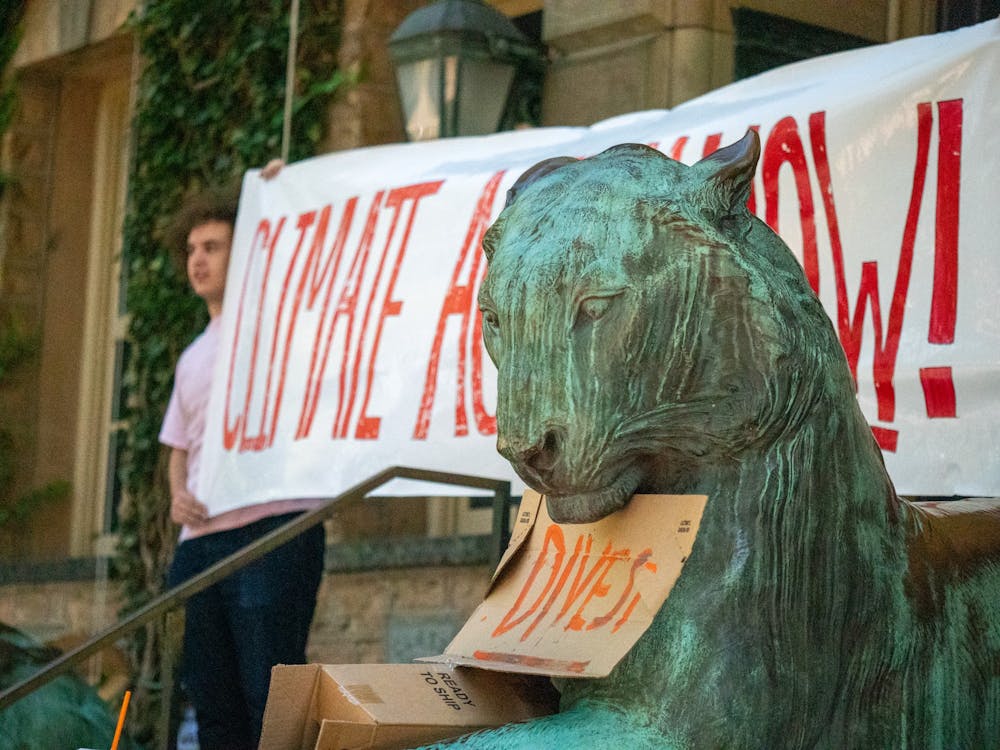My first issue with this idea is that it implies, as Daker puts it, “people here have a lot of pressure to keep negative sentiments to themselves.” When students have a complaint concerning Princeton, they typically express it — in public, online or in The Daily Princetonian. Classmates sharing and trading gripes can quickly turn acquaintances into friends. Whether people are complaining about the workload, the “lack of a social scene” or the ineptitude of a certain preceptor, friends are generally there to comfort and complain as well. Most people at Princeton are accustomed to the potential pressures of academic stress, the imperative to achieve in extracurricular activities while maintaining a social life and a semi-regular sleep pattern.
Overall disappointment with Princeton and general annoyance are two separate things. The discussion concerning “happiness” on campus should distinguish between one’s dislike of an aspect of Princeton versus chronic depression caused by external or unrelated circumstances. If the student is genuinely unhappy due to a specific policy or aspect of his or her experience at Princeton, he or she should work to improve this situation through USG or other similar organizations on campus. However, it’s a sad but true fact that no one is going to be happy every day during the four years they live on Princeton’s campus. In the workforce, there is no easy remedy for the unhappiness within an institution — essentially one can either change the culture himself or find another, more suitable job.
Navigating rough patches is essential in any situation; in college, finding the things you don’t like is as important as finding the things you do. If you are made unhappy by a specific aspect of Princeton — by your major, by the finance career pipeline, by living in a suburban area — then you know what to avoid in the future.
The discussion of happiness at Princeton obviously becomes very relevant during Princeton Preview weekends. Determining what college will make you happiest is one of the primary factors that influence a prefrosh’s May 1 decision. Though individual views are useful to prefrosh, what’s more important is that they get a fuller picture of the University. Hosts should act as ambassadors to their prefrosh — to introduce them to as many of their professors, friends and diverse activities on campus as possible. The prefrosh are capable of drawing their own conclusions from what they observe on campus.
“Earn Your Stripes” is not a mandate to unconditionally praise Princeton as a university and institution, but rather to recognize your participation in something larger than your individual experiences and to take part in shaping Princeton’s future. Whether you are happy or unhappy here, whether it is because of certain aspects of Princeton or external circumstances, the reality is as simple as the P-rade T-shirt slogan: You are here.
Being a member of Princeton’s community, especially during weekends like Preview, means not only acting as a representative of the University but also understanding that Princeton can exists outside of your individual experiences. It is an aggregate of the experiences of students past and present. That being said, though the University is larger than any one person, each student here was admitted for a reason — and came here for a reason. There’s more to being a Princetonian than your residential college or the classes you take.
It’s important to remember that being a Princeton student means that you are a part of a rich history — that you share something in common with people like Justice Sotomayor, John Foster Dulles, Pete Conrad and, of course, Woodrow Wilson. This is what resonates with prefrosh, and by only explaining your perspective on the University, you do a disservice to Princeton as a whole. Students can have a positive impact on Princeton as a whole, however small, by thinking about Princeton and not necessarily themselves. Fortunately, this can start at Preview Weekend, when you can “Earn Your Stripes” and participate in something greater than yourself alone.
Elise Backman is a freshman from Sea Bright, N.J. She can be reached at ebackman@princeton.edu.









